What is Celiac disease (Gluten Allergy?)

Celiac disease is an autoimmune disorder in which your immune system responds abnormally to gluten. Gluten is present in wheat, barley, and rye. If you have a gluten allergy, eating gluten will cause your immune system to destroy your villi. These are the finger-like parts of your small intestine that are responsible for absorbing nutrients. Without healthy villi, you won’t be able to get the nutrition that you need. This can lead to malnutrition. Gluten Allergy can have serious health consequences, including permanent intestinal damage. Adults and children often experience different symptoms due to celiac disease. Children will most commonly have digestive symptoms. These can include: The failure to absorb nutrients during critical years of growth and development can lead to other health problems. These can include: In Adults may also have digestive symptoms if they have celiac disease. However, adults are more likely to experience symptoms such as: If you think you might suffer from a gluten- or wheat-related condition, then it’s important that you talk to a gastroenterologist before diagnosing yourself or beginning any treatment on your own. An allergist or can run tests and discuss your history with you to help reach a diagnosis. Celiac disease can lead to severe health complications, especially in children. Because there’s a genetic component to celiac disease, it can run in families as well. To diagnose celiac disease or wheat allergy , your doctor will need to conduct a blood or skin prick test. These tests are dependent on the presence of gluten or wheat in your body in order to work. Managing gluten deficiency: The treatment for celiac disease is adhering to a strict gluten-free diet . The treatment for a wheat allergy is to adhere to a strict wheat-free diet.
Causes of Low Hemoglobin: Symptoms & Treatment
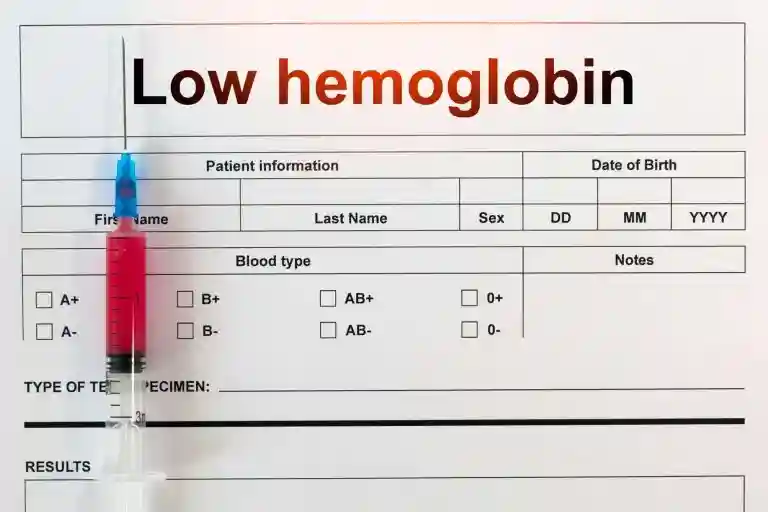
What is Low Hemoglobin? Hemoglobin is the protein present in your red blood cells. The red blood cells transport oxygen throughout your body. Oxygen is your energy source, and it fuels the cells. When your body’s capacity to produce red blood cells is hampered by a disease, the hemoglobin level can decrease. Causes of Low Hemoglobin Several factors can contribute to inadequate hemoglobin amounts, including: Symptoms of Low Haemoglobin The severity and etiology of anemia influence its symptoms. A patient may initially have no symptoms from anemia due to its mildness. On the other hand, when the anemia worsens, symptoms of low haemoglobin often start to appear. Anemia symptoms may be concealed by another illness if that illness is the source of the anemia. Among the possible signs of anemia are: Treatment of Low Haemoglobin Your anemia type will determine how you are treated. Following are the common treatment of low haemoglobin: Diseases Associated with Low Hemoglobin Diseases and conditions that cause your body to produce fewer red blood cells than normal include: Diseases and conditions that cause your body to destroy red blood cells faster than they can be made include: What are Causes of Bleeding Loss? 1) Haemoglobin: A low haemoglobin result indicates anaemia which can have many causes including pregnancy, blood loss, liver damage, iron deficiency and much more. Haematology is a branch in medicine that is concerned in analysing various blood components and blood forming organs (bone marrow, spleen and lymphoid tissues). The speciality is a tool used in treating blood diseases from anaemia to the blood (leukaemia), lymphoid glands (lymphoma and myeloma) and abnormalities of blood coagulation. Wockhardt hospital offer the most advanced diagnostic technologies and treatments available for blood disorders .The department of haematology at Wockhardt is the branch of medicine concerned with the study, diagnosis, treatment, and prevention of diseases related to the blood. At Wockhardt Hospital the speciality is fully equipped in diagnosing the various different types of blood conditions that are looked at include anaemia, thalassemia, haemophilia, general blood clots , bleeding disorders, haematological malignancies such as lymphoma and leukaemia (cancers) as well. At our centres, we have essentially a team of highly trained specialists, nurse clinicians, physical and occupational therapists who are all equipped to provide patients with care in the field of Haematology. We use the latest in pharmaceuticals and leading-edge technologies to help you win over diseases and live a normal life. FAQs on Low Hemoglobin Q. At what level is hemoglobin dangerously low? Hemoglobin levels below 7 g/dL are considered dangerously low. Below this threshold, individuals may experience severe symptoms and require medical intervention to prevent complications. Q. How do you treat low hemoglobin? Treatment for low hemoglobin typically involves iron supplementation, dietary adjustments to include iron-rich foods, and addressing underlying conditions such as chronic diseases or blood loss. In severe cases, blood transfusions or erythropoietin injections may be necessary to replenish hemoglobin levels effectively. Regular monitoring and follow-up appointments help ensure the effectiveness of treatment. Q. Is hemoglobin 7.5 Low? Hemoglobin levels of 7.5 grams per deciliter are considered low and may indicate anemia. However, the severity of symptoms and need for treatment depend on individual health factors and underlying condition Q. How serious is a hemoglobin of 7? Hemoglobin levels below 7 g/dL are deemed severely low and can cause severe symptoms including weakness, exhaustion, and dyspnea. To treat this disease and avoid consequences, immediate medical intervention is usually necessary. Q. What if hemoglobin is less than 8? If hemoglobin is less than 8 g/dL, it’s indicative of anemia and may cause symptoms like fatigue and weakness. Medical evaluation is necessary to determine the underlying cause and appropriate treatment, which may include iron supplementation or addressing any contributing health conditions. Severe cases may require interventions, such as blood transfusions to raise hemoglobin levels.
Benefits of Blood Donation
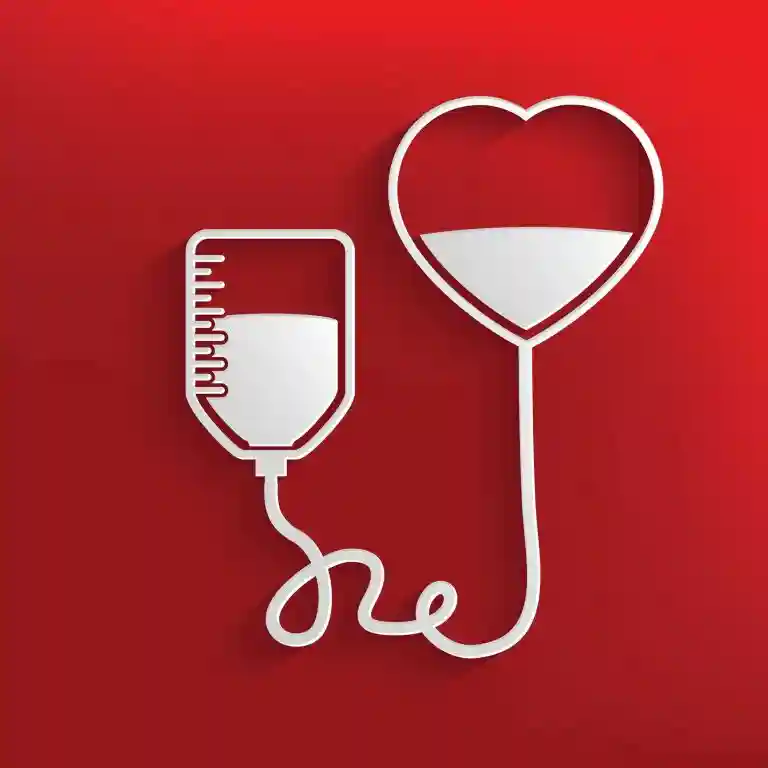
Blood donation is good for the health of donors as well as those who need it. Donating blood can help in treating patients suffering from cancer, bleeding disorders, chronic anaemia associated with cancer, sickle cell anaemia, and other hereditary blood abnormalities. It is important to know that human blood cannot be manufactured, people are the only source of it and that is why it is important to donate blood and help those who need it. A variety of tests are done prior to the blood donation for eligibility and to ensure safety. It is also possible to store your own blood for your future needs. Make sure the blood is stored at a good blood bank in you areas. Health Benefits of Donating Blood: Self-satisfaction that you helped someone Blood donation not only makes the receiver’s life good but also helps the donor to maintain good health. The health benefits of donating blood are mentioned below. Reduces iron overload in the body Health benefits of donating blood include reduced risk of hemochromatosis. Hemochromatosis is a health condition that arises due to excess absorption of iron by the body. This may be inherited or may be caused due to alcoholism, anaemia or other disorders. Regular donation of blood may help in reducing iron overload. Make sure that the donor meets the standard blood donation eligibility criteria. Lowers risk of cancer Blood donation helps in lowering the risk of cancer. By donating blood the iron stores in the body are maintained at healthy levels. A reduction in the iron level in the body is linked with low cancer risk. Maintains healthy heart liver Blood donation is beneficial in reducing the risk of heart and liver ailments caused by the iron overload in the body. This, in turn, increases the risk of cirrhosis, liver failure, damage to the pancreas, and heart abnormalities like irregular heart rhythms. Donating blood helps in maintaining the iron levels and reduces the risk of various health ailments. Promotes weight loss Regular blood donation reduces the weight of the donors. This is helpful to those who are obese and are at higher risk of cardiovascular diseases and other health disorders. However, donating blood should not be very frequent and you may consult your doctor before donating blood to avoid any health issues. Stimulates blood cell production After donating blood, the body works to replenish the blood loss. This stimulates the production of new blood cells and in turn, helps in maintaining good health. Blood donation can save a life.
High Infertility rate in Men and Women

Infertility is defined when couples are unable to conceive a child, even though they’ve had frequent, unprotected sexual intercourse for a year or longer. Infertility can be caused due to factors affecting the female or the male partner. Here are a few common reasons in women that lead to Infertility : Causes in Women: 1) Advancing maternal age: Female age-related infertility is the most common cause of infertility today. For unknown reasons, as women age, egg numbers decrease at a rapid rate. And as ageing occurs, egg quality, or the likelihood of an egg being genetically normal, decreases as well. 2) Ovulation disorders: Normal and regular ovulation, or release of a mature egg, is essential for women to conceive naturally. There are many disorders that may impact the ability for a woman to ovulate normally. 3) Tubal occlusion (blockage): A history of sexually transmitted infections including chlamydia, gonorrhea, or pelvic inflammatory disease can predispose a woman to have blocked fallopian tubes. Tubal occlusion is a cause of infertility because an ovulated egg is unable to be fertilized by sperm or to reach the endometrial cavity. 4) Uterine fibroids: Fibroids are very common (approximately 40% of women may have them) and the mere presence alone does not necessarily cause infertility. The size and position of the fibroid determine its effects on your pregnancy. 5) Endometrial polyps: Endometrial polyps are finger-like growths in the uterine cavity arising from the lining of the uterus, called the endometrium. They can decrease fertility by up to 50% according to some studies. 6) Endometriosis: Endometriosis is a condition whereby cells very similar to the ones lining the uterine cavity, or endometrium, are found outside the uterine cavity. It is found in approximately 10-50% of reproductive-aged women and can be associated with infertility as well as pain during intercourse and/or menstrual periods. CAUSES IN MALES: 1)Erectile dysfunction, 2) Low sperm production, abnormal sperm function or blockages that prevent the delivery of sperm. Illnesses, injuries, hormonal imbalances, chronic health problems, lifestyle choices and other factors can play a role in causing male infertility. The semen analysis is one of the main tests to evaluate the male partner. Risk factors linked to male infertility include: Fertility treatments for females: 1)Fertility drugs and hormones to help the woman ovulate or restore levels of hormones. 2)Surgery to remove tissue that is blocking fertility (such as endometriosis) or to open blocked fallopian tubes. 3)assisted reproductive technology or ART treatments used for male as well as female infertility problems: -IUI (intrauterine insemination): Sperm is collected and placed directly inside the woman’s uterus while she is ovulating. -IVF (in vitro fertilization): The sperm and egg are collected and brought together in a lab. The fertilized egg grows for 3 to 5 days.
Mitral Valve Repair Surgery
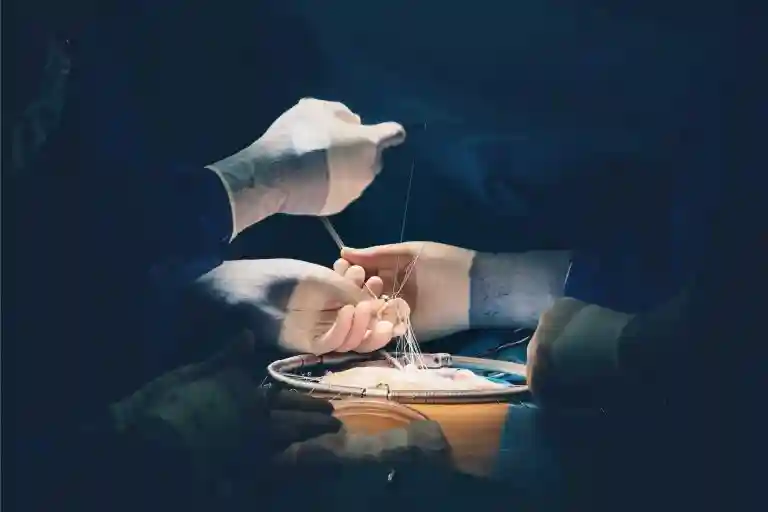
Heart valve surgery fixes a damaged or faulty heart valve. There are two main types of heart valve surgeries: valve repair and valve replacement. Double valve surgery is a surgery where two valves are involved. Sometimes a faulty valve can be repaired by cutting away excess tissue in the cusps of the valve and sewing the edges together. It can be repaired by shortening or connecting the cords that act like hinges on the valve. Special rings called ‘prosthetic rings’ or ‘annuloplasty rings’ can also be used to narrow an enlarged valve and strengthen the repair. Another method used to open a narrowed valve is called ‘balloon valvotomy’. In the valve replacements , the new valve is sewn onto a rim of tissue that is kept from the original valve. Several types of replacement valves are used. These are either biological tissue valves or mechanical valves. Advantage: An advantage of valve repair operations is that usually your own valve tissues are used in the repair. If a valve can’t be repaired, it is sometimes removed and replaced with a new valve. FAQs Will I feel pain after the operation? You will probably feel quite sore, especially in the first few days after the operation. You will receive pain relieving medications and will be monitored by the treating physician. How long will I have to stay in hospital? This varies depending on your condition and your response to surgery. On average, after heart valve surgery, people stay in hospital for six to nine days. What is the duration of such surgeries? These surgeries usually take around 4 to 6 hours. The surgery is performed in the special operation theaters designed for heart surgeries with appropriate infrastructure.
Importance of Immunization
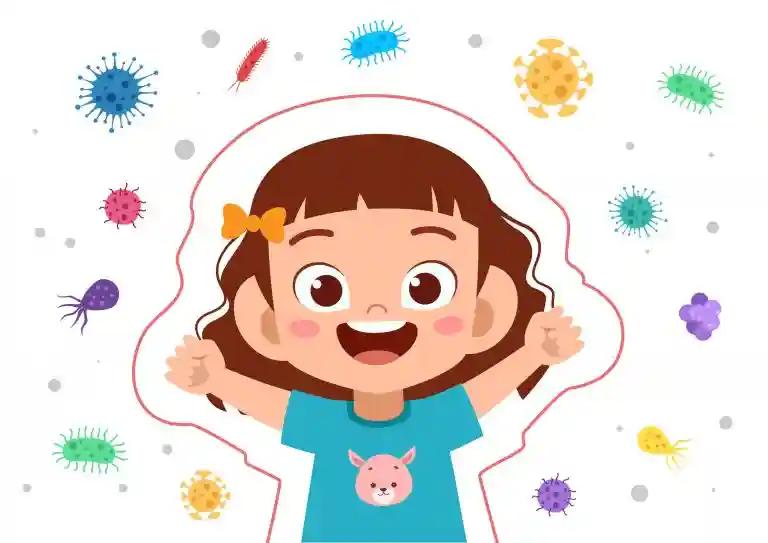
Immunisation describes the process whereby people are protected against illness caused by infection with microorganisms (formally called pathogens). The term vaccine refers to the material used for immunization. A vaccine usually contains an agent resembling disease-causing bacteria. When this biological preparation is injected into your body, your immune system recognizes the agent and destroys it. However, your immune system remembers the agent and next time, when the actual microbe attacks you, it safeguards you against the disease. Vaccines are usually made from the toxins of the killed or weakened microorganism. Importance of Vaccination Getting, immunized costs less than getting treated for the diseases as the vaccines protect you from getting infected and build resistance to the germ. Vaccination not only protects you but also indirectly protects the community. Some Facts on Immunization: Important Reasons to Vaccinate Your Child Adult Immunization Travel Immunization It is important to take vaccines as precautions while traveling to certain countries. For example, yellow fever vaccination is needed by Indians traveling to African countries. We don’t have yellow fever in India yet – but the country has all the favorable parameters for it to thrive quite well. So if someone from India travels to Africa, contracts the disease, and returns to India, they can spread the disease. Similarly, vaccinations against tuberculosis, typhoid, and meningococcal meningitis are required if you travel to the US or European countries. To learn more about vaccines for adults and children please, visit Wockhardt Hospitals.
City doc saves critically ill patient of split aorta, a rare heart defect : Wockhardt Hospital, Nagpur
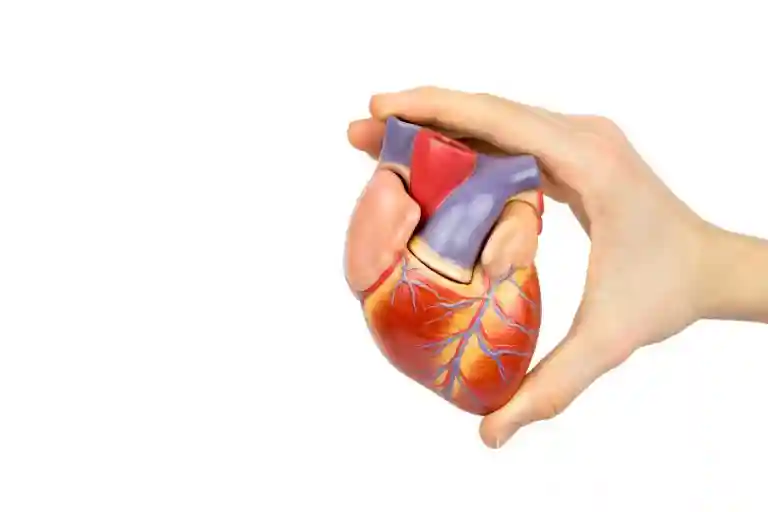
Dr Sameet Pathak, Cardio Thoracic surgeon and Vascular Surgeon from Nagpur has saved life of a 60-year-old critically-ill patient from Amravati. By performing surgery for a rare heart defect called as ‘aortic dissection’ in which the aorta, the main blood vessel arising from the heart, gets torn or split into a two-barrel tube. The patient required replacement of both the damaged aorta and the aortic valve. The patient, when being brought to Nagpur from Amravati, started developing heart failure and had severe chest pain along with very low blood pressure. His kidney and brain were also affected badly. The patient had also developed paralysis of left limbs. “Had the surgery not been done on time, the patient would have died within 48 hours,” Dr Pathak, who performed the surgery at Wockhardt Hospital, told Times of India. Big congratulations to Dr Sameet Pathak, Dr Awantika Jaiswal – Anaesthetist, Dr. Suryashree Pandey, Dr. Ankur Jain – Neurologist, Dr. Nitin Shinde – Intensivist, Dr. Rita Devhare – Perfusionist, Sisters – Jijo Varghese, Shino Cherian and Shubhangi Dhepe and other clinical team members who proved “Life wins’. Source : https://timesofindia.indiatimes.com/city/nagpur/city-doc-saves-critically-ill-patient-of-split-aorta-a-rare-heart-defect/articleshow/65445513.cms
Wockhardt Hospitals female staff goes pink in October

Wockhardt Hospitals, Mira Road which is a part of hospitals chain of Wockhardt Group is embarking on a month long campaign to create awareness about breast cancer with the help of their all female doctors, nurses’ security guards and housekeeping staff. On the occasion of breast cancer awareness month all female staff will wear maximum pink dress in October and at the same time they will discuss about breast cancer awareness details with all female OPT and IPD patients. On this occasion Ravi Hirwani – Centre Head Wockhardt Hospitals in Mira Road said, “Many of us are aware about the colour pink being an international symbol of breast cancer awareness. Every October, people all around the world sport the colour to support the breast cancer awareness month. It could be in the form of pink ribbons, pink lapel pins or by simply wearing the colour, so we decided make awareness about breast cancer in this month by using maximum pink colour. We have 70 per cent female staff in our hospitals and they all will make awareness about cancer prevention among our patients and their relatives regularly in this month.” Source : http://www.expressbpd.com/healthcare/happening-now/wockhardt-hospital-female-staff-goes-pink-in-october/406144/
Wockhardt Hospitals awarded “Best clinical practices of the year award” at Navabharat Value Based Healthcare Summit and Awards 2018

Wockhardt Hospitals, known for delivering the best medical facilities and patient care, was recently awarded “Best clinical practices of the year award” at “2nd Edition of Navabharat Value Based Healthcare Summit and Awards 2018,” held at Vivanta by Taj Colaba. On behalf of the hospital, the award was received by Dr. Clive Fernandes, Group Clinical Director from Ms. Vidya Thankur, Minister of State (Maharashtra) for Women and Child Development, Food and Civil Supplies and Consumer Protection, Food and Drugs Administration and Mr. Nimish Maheshwari, Managing Director, Navbharat Publication. *Navbharat publication, the 85 years old chain of newspaper published from the state of Maharashtra, Madhya Pradesh, Chattisgargh, Orissa & Gujarat. This Summit has attended by leaders in healthcare industry like prominent doctors, healthcare professionals from Private and Government health corporations from Maharashtra.
Wockhardt Hospitals, SOBO Launches a Diabetes Clinic Powered by Wellthy Therapeutics
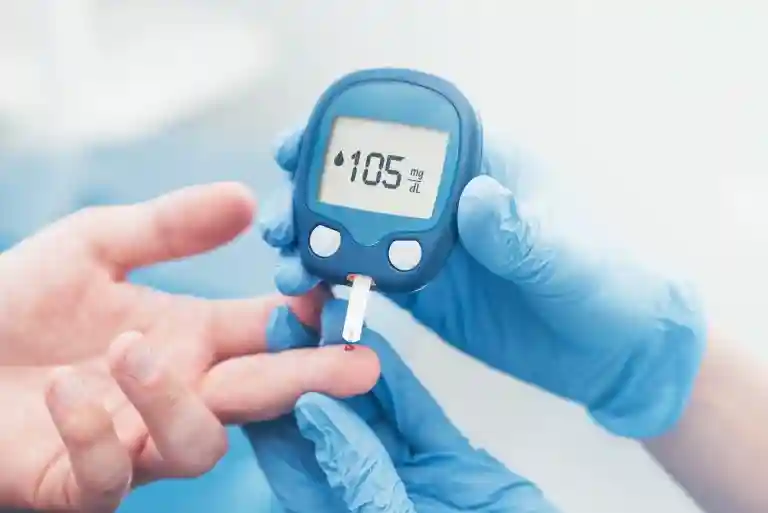
With a growing number of diabetic patients in the country, there is a dire need for more clinics so that affected people are saved from Diabetes & Diabetes related problems.Wockhardt Hospitals in Mumbai a JCI & NABH Accredited hospitals in association with Wellthy Therapeutics launched a “Diabetes Clinic”. Digital technologies suite for diabetes will be used to help people in treatment from the medical condition. The Launch was followed by seminar for visiting patients with free check up of HbA1c test and diabetes camp. Digital therapeutics, also known as “software as a drug,” involves the use of digital tools or systems to treat medical conditions. In digital therapeutics, digital technologies such as apps, devices and software are used to treat patients in the same way drugs, surgeries or medical devices are applied therapeutically. Digital therapeutics may be used as stand-alone treatments or as part of a broader treatment program that incorporates both digital and non-digital (conventional) therapies. Dr. Parag Rindani, Centre Head at Wockhardt Hospitals mentions, “The newly launched Diabetes surgery clinic aims to offer accessible surgical solutions for patients who seek aid with various problems related to diabetes. Our patients with chronic conditions like diabetes stand to benefit from continuous and real-time care provided by Wellthy Therapeutics’ digital therapeutic suite, as we enable out-of-clinic extensions to our world-class in-clinic care to help our patients improve their health outcomes. Diabetes clinic will comprise of endocrinologist, Diabetic Foot Surgeon, Neurologist, internal medicine expert and other specialties. Source: https://health.economictimes.indiatimes.com/news/hospitals/wockhardt-hospital-sobo-launches-diabetes-clinic/66759060














